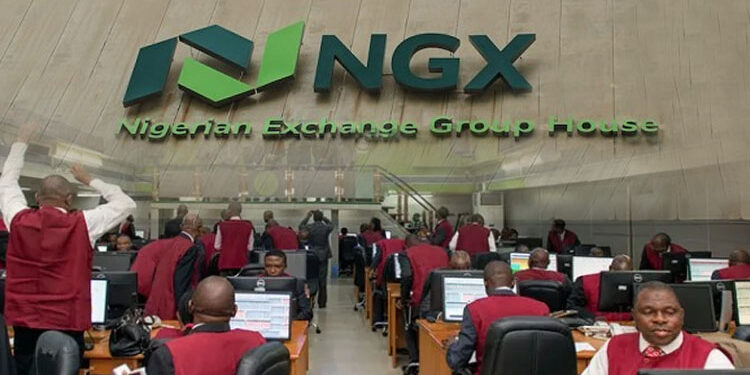The Nigerian Exchange Limited (NGX) experienced a bearish week, culminating in a substantial N439 billion dip in market capitalization. This decline pushed the All-Share Index down by 0.50%, settling at 140,295.50 points. This downward trend reflects a continuation of bearish sentiment that permeated the market throughout the week, impacting key performance indicators. The total market capitalization closed at N88.769 trillion, marking a 0.49% decrease from the preceding week’s N89.208 trillion. This negative performance underscores the prevailing investor caution and profit-taking activities in the face of persistent macroeconomic uncertainties.
Trading activity on the NGX also witnessed a downturn. A total of 3.199 billion shares, valued at N85.399 billion, were traded across 142,477 deals. This represents a significant decrease compared to the previous week’s trading volume of 4.773 billion shares worth N107.426 billion executed in 152,965 deals. Despite the overall market slowdown, the financial services sector continued to dominate trading activity, accounting for a substantial 68.61% of the total equity turnover volume and 49.99% of the total value. This dominance highlights the continued interest in financial stocks despite the overall market downturn.
Within the financial services sector, FCMB Group Plc, Champion Breweries Plc, and Access Holdings Plc emerged as the top three traded equities by volume. These three companies accounted for a combined 778.603 million shares worth N13.155 billion traded in 11,288 deals. This represents a significant portion – 24.34% – of the total equity turnover volume and 15.40% of the total value, demonstrating the significant influence these companies wield within the sector and the overall market. The Consumer Goods and Services Industries followed the financial sector in trading activity, though with considerably lower volumes and values.
Beyond the equities market, the Exchange Traded Products (ETPs) and bonds segments also experienced reduced activity. ETP trading saw a decline in both volume and value compared to the previous week, with 202,506 units worth N23.784 million traded. Similarly, the bonds segment saw 80,523 units worth N74.045 million traded, indicating a slight increase in value but a decrease in the number of deals compared to the prior week. These trends suggest a broader market slowdown affecting various asset classes.
Price movements within the equities market revealed a mixed picture. While 32 equities appreciated in price, a decline from the previous week’s 43, a larger number, 57, declined, up from 54 the week before. Another 57 equities remained unchanged, illustrating a week of volatile trading activity. McNichols Plc led the gainers with an 18.75% increase, followed by NEM Insurance Plc and Berger Paints Plc with gains of 17.29% and 15.31%, respectively. Conversely, Secure Electronic Technology Plc topped the losers’ chart with a 22.73% decline, trailed by Guinea Insurance Plc and Lasaco Assurance Plc, experiencing losses of 19.77% and 13.29% respectively. These fluctuations highlight the inherent risks and opportunities present in the equities market.
Despite the overall bearish sentiment, the NGX witnessed several new listings and additions, injecting some positive momentum into the market. Chapel Hill Denham Nigeria Infrastructure Debt Fund listed additional units, increasing its total units. Coronation Asset Management Limited listed units of its Coronation Infrastructure Fund, adding to the fund’s size and providing investors with new opportunities. Industrial & Medical Gases Nigeria Plc activated the trading of its rights issue, offering existing shareholders the chance to increase their stake in the company. Furthermore, supplementary listings of Federal Government of Nigeria bonds boosted the overall bond market. These listings, amidst a bearish week, signify ongoing activity and potential future growth within the Nigerian capital market. Analysts attribute the week’s negative performance to profit-taking and cautious trading amid lingering macroeconomic concerns. They advise investors to focus on fundamentally sound stocks despite the current bearish trend, suggesting a belief in the long-term potential of the Nigerian market.


